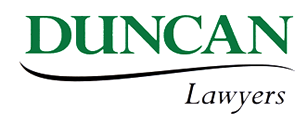Government approval requirements are sometimes pejoratively described as tape - red tape. Incoming politicians frequently want to remove it, or at least say they do.
The tape metaphor sometimes mixes with others. Thus (Research & Policy Briefs, “The Fight against Corruption: Taming Tigers and Swatting Flies”, World Bank, Malaysia Hub, No. 27, January 2020):
“Bureaucracy and layers of red tape not only frustrate citizens hoping to receive government services but also create rent-seeking opportunities [for] those who function as gatekeepers.”
No doubt. But is deregulation the answer? If the provision of government services is not regulated how are scare resources to be allocated?
At the heart of the issue are administrative discretions. It can suit administrators (for a variety of reasons) to say “no, we have no discretion.” The absence of discretion can put a stop to further discussion with an angry stakeholder standing at the counter. It can open the door to corrupt behaviour.
Administrative discretions, coupled with administrative guidelines and transparency of administration, provide a pathway to good quality administration. If only this could be reduced to a three word slogan.

